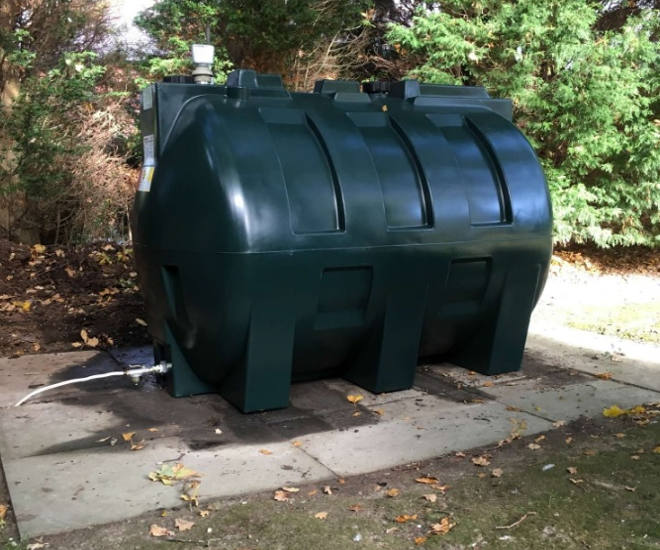
In our last post, we talked about the dangers of not replacing an old or damaged oil storage tank – the most serious of which is the risk of an oil leak or spill (read more here).
If you should discover that your domestic oil tank is leaking, it’s essential that you take immediate action. Even a small leak can have a significant effect on the environment, water systems and human health. In our blogs this month, we’re sharing the most important guidance about what you need to know about problems with the tank on your property.
Remember; if you’re concerned about a leak or imminent failure with your tank, please call us straight away on 07976 831524 for immediate assistance.
What are the main reasons for domestic oil leaks?
There are several reasons why your tank may leak, but one of the main culprits is when ageing components begin to fail. Feed lines, flexible hoses and the tank itself all have a finite lifespan and will need regular maintenance to stay functioning for as long as possible.
The other big cause of oil tank leaks is accidental damage. Bumps and knocks can affect the integrity of your tank and when certain pieces of equipment get damaged (such as sight gauges) it can increase the risk of over-filling during delivery.
Who is deemed responsible for a domestic oil leak?
When it comes to any hazardous substance – including heating oil and fuel – anyone that uses, stores, transports or manufactures it has a duty to manage it properly. As the owner and user of an oil storage tank, it falls to you to ensure the tank is well-maintained, that any spills are cleaned up and that any further consequences are dealt with.
It’s a good idea to check with your home insurance provider each year that your coverage includes the costs associated with an oil tank. Not only should the value of the tank itself be considered, but the value of the oil inside and the potential cost of rectifying any damage in the event of a spill.
How do you determine whether the spill is major or minor?
The extent of the spill will determine your next steps. To work out what these should be, you need to ask yourself the following questions:
- Can you smell oil indoors?
- Has the oil spread beyond your property, under the house or down a drain?
- Are you close to a water source, such as a pond, stream or private water supply?
It’s also essential that you contact your insurer as soon as possible – your cover may include a specialist contractor to assist you in the clean-up process. You will also need to inform your local authority.
What needs to happen next?
If you can answer “no” to all three questions above, you can treat the spill as a minor incident. In this case, you will need to investigate how far from the source of the spill the oil has travelled and remove all contaminated soil from the site. Take pictures and keep soil samples for later evidence.
If you answer yes or “not sure” to any of the above questions, then the damage caused by the leak may be quite severe. If soil and groundwater have been contaminated, your insurers will need to appoint a specialist environmental contractor to assess the best course of action.
Dealing with a leak or spill quickly will minimise the damage caused, ultimately resulting in less oil being wasted and an easier, less expensive clean-up. For specific details about dealing with a domestic oil tank link, read our next blog post or give our team a call if you have current concerns about your tank.
